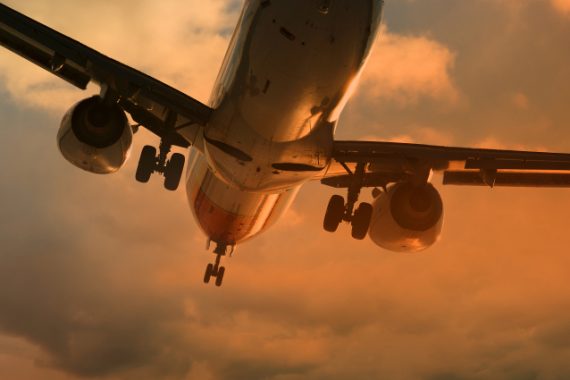Why aviation matters blog series – The CBI’s Director of Infrastructure and Energy Tom Thackray on how aviation connects British business with the world
November 5th, 2020
The aviation sector is vital to the wider UK economy and its recovery from the Coronavirus pandemic. As well as employing hundreds of thousands of staff, driving investment in cutting-edge technology, and underpinning vast domestic supply chains, UK aviation matters because it connects Britain with the world and links British products, experiences and expertise with billions of potential buyers overseas.
Businesses need flights to compete in a rapidly changing world economy. From professional services firms with clients in New York, to regional manufacturers who export to the UAE, British firms have built their business models on the assumption of easy access to growing markets. And while digital connectivity has enabled many parts of the economy to keep trading in the face of the pandemic, some things still need a human touch.
Nowhere is this more obvious than in the UK’s city centres, where luxury British brands have grown to cater for the spending habits of wealthy visitors from across Asia, North America, Europe, and the Middle East. Before Coronavirus, the ease with which operators could connect global consumers with high quality British products and services meant that by 2017, 49% of the total value of UK exports outside of the EU travelled by air.[1] Until the pandemic hit, Heathrow was the country’s largest port by value of goods transited.[2]
Growing markets reached by aircraft will also be key to delivering new trading relationships with the world after Brexit. Like no other sector, aviation’s success stands behind aspirations for a Global Britain with brand power in markets with growing middle classes such as India, China, and Brazil. Increasing the UK’s share of exports to these markets will rely on air routes from regional centres as well as the London hubs. For instance, pre-pandemic, the Manchester-Beijing route had one of the highest load factors of any service launched between Europe and China, moving tourists, trade and investment into the North West.[3]
Most of all, as we recover from the economic shock from Coronavirus, businesses recognise the value of restoring UK connectivity with world markets. Rebuilding consumer confidence in flying in and out of the country will be essential for securing the commercial viability of routes connecting businesses with key trading partners. This will not only benefit carriers and their supply chain, supporting thousands of jobs in aviation and aerospace manufacturing, but crucially the wide range of firms that depend on the people and products that travel on these routes.
Central to this ambition will be establishing an affordable and internationally recognised testing regime that enables easy travel into and out of the country without the need for significant quarantine periods. The government’s planned test and release programme is a start, but to see the volume of travel needed to restart key routes, the UK will need to do more. In advance of the summer season, the business community needs testing systems developed that require minimal quarantine at borders and add very little to the cost of flying. This is achievable with political will combined with the innovation and investment of the private sector. Only then can aviation return to its key role helping firms connect and compete in a global market, ensuring Britain is back open for business.
[1] Steer, Assessment of the value of air freight services to the UK economy, October 2018, p.35.
[2] Centre for Economic and Business Research, February 2020.
[3] Manchester China Forum, The China Dividend – Two Years In, p.7.


